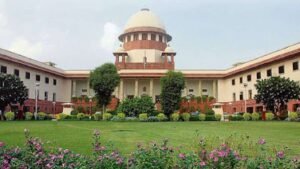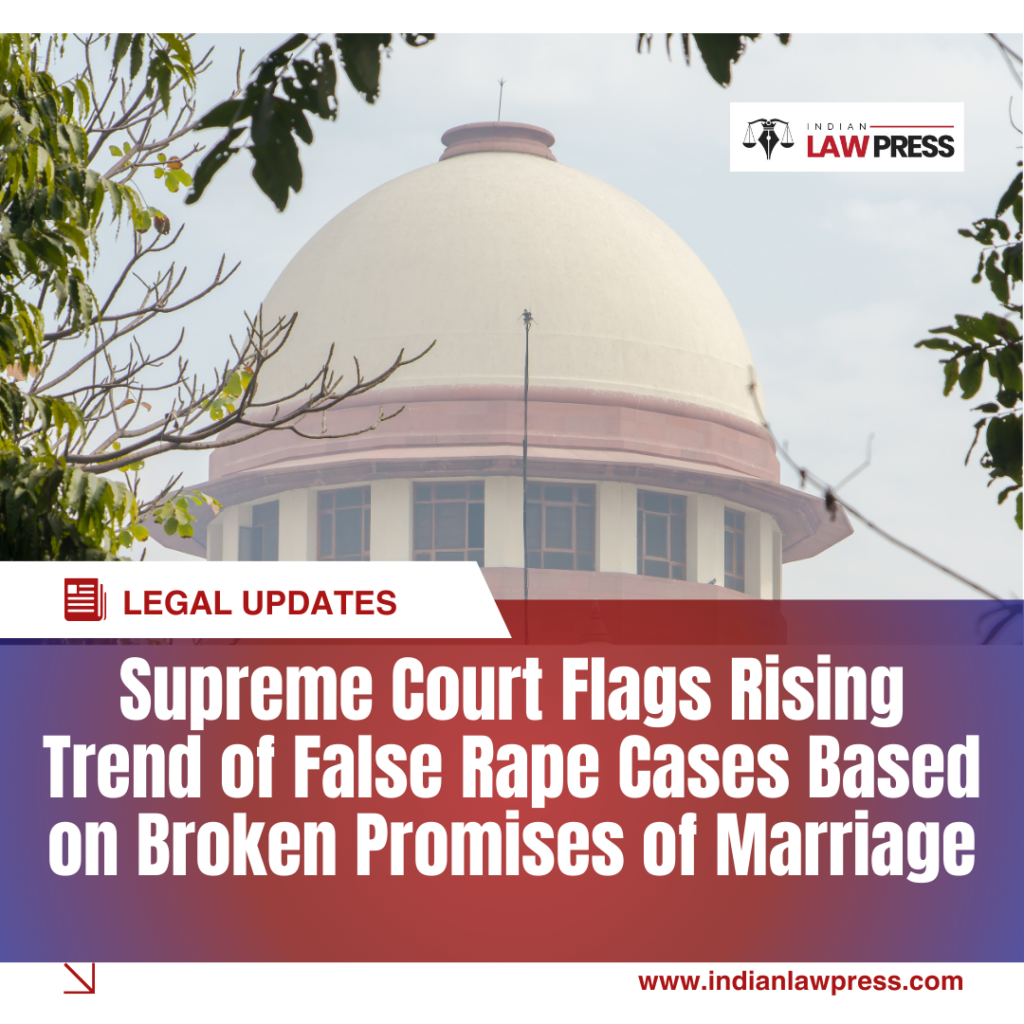
Supreme-Court-Puts-Waqf-Amendment-Act-2025-Under-Scrutiny
In a crucial hearing on April 16, 2025, the Supreme Court of India examined a batch of petitions challenging the Waqf (Amendment) Act, 2025. Solicitor General of India, Tushar Mehta, appearing for the Union Government, made two significant submissions during the proceedings:
- Non-Muslims will not be appointed to the Central Waqf Council or State Waqf Boards under the amended provisions—at least until the next hearing.
- Existing Waqf properties, including waqf-by-user, whether registered or notified, will not be de-notified during the pendency of the matter.
These assurances were officially recorded by a three-judge bench led by Chief Justice Sanjiv Khanna, along with Justices Sanjay Kumar and KV Viswanathan. The matter has been scheduled for further hearing on May 5, 2025, at 2 PM, under the revised cause title, “In Re: Waqf Amendment Act.”
Court’s Caution Against Altering Status Quo
The Court expressed concern over the sweeping changes introduced by the new legislation and the potential impact on existing Waqf rights. While the Solicitor General emphasized that legislation should not be stayed lightly, the CJI remarked that maintaining the current legal status is vital during ongoing litigation to protect individual rights.
“We don’t want the situation to change so drastically that it affects the rights of the parties,” stated CJI Khanna.
The Solicitor General sought a week’s time to respond fully, which was granted on the condition that:
- No appointments of non-Muslims to Waqf Boards or the Central Council would be made.
- Registered and notified Waqf properties would remain untouched.
Court-Identified Concerns on the Amendments
In the previous hearing, the Court had planned to pass an interim order but deferred it to allow the Union more time. However, it flagged several concerns, including:
- Uncertainty over waqf-by-user properties and their legal recognition.
- The requirement to register centuries-old waqf properties, even those already upheld by courts.
- The inclusion of non-Muslims in Waqf Boards and its effect on religious autonomy.
- The power of the Collector to suspend waqf status during an inquiry.
- Potential violation of earlier judicial rulings affirming waqf status of certain properties.
Petitioners’ Arguments: Historic and Legal Implications
Senior Advocate Kapil Sibal, representing the petitioners, strongly opposed the amendments, especially the deletion of the waqf-by-user provision and inclusion of non-Muslims on governing boards.
He noted that many historical mosques and dargahs, like Jama Masjid in Delhi, were created as waqf-by-user centuries ago—often without written deeds. The amended law, according to Sibal, places an unreasonable burden of documentation that may not exist.
He also challenged the provision that waqf status is suspended during a Collector’s inquiry into whether the property belongs to the government. Sibal argued that such provisions threaten the sanctity of long-established waqf institutions.
Response from the Union
Solicitor General Mehta defended the amendments, stating that the legislation was formed after extensive public consultation, citing lakhs of representations. He claimed misuse of waqf laws had led to private and village lands being taken over under the garb of waqf, thus affecting numerous individuals.
While reiterating the government’s position, SG assured the Court that until further directions:
- No waqf will be de-notified, and
- No new non-Muslim appointments will be made to the boards.
Political and Legal Landscape
The petitions have attracted widespread attention and intervention. Several opposition leaders and religious organizations—including AIMIM MP Asaduddin Owaisi, Delhi MLA Amanatullah Khan, All India Muslim Personal Law Board, and DMK—have opposed the 2025 amendments.
Conversely, BJP-led States like Assam, Haryana, Rajasthan, and Maharashtra have submitted applications in support of the law.
Key Provisions Under Challenge
- Omission of waqf-by-user clause
- Inclusion of non-Muslim members in Waqf Boards
- Limitation on female representation
- Requirement of five years’ Islamic practice to create a waqf
- Government powers to decide waqf status during disputes
- Application of the Limitation Act
- Invalidation of waqfs over ASI-protected monuments
- Restrictions on creating waqfs in Scheduled Areas
Conclusion
The ongoing hearings on the Waqf (Amendment) Act, 2025, represent a significant constitutional moment. The Supreme Court’s cautious approach and emphasis on maintaining the status quo underscore the sensitivity of religious rights and property laws in India. The May 5 hearing is expected to be pivotal in shaping the legal future of waqf governance.
Read Also: Supreme Court Criticizes UP Police for Converting Civil Cases into Criminal Matters





